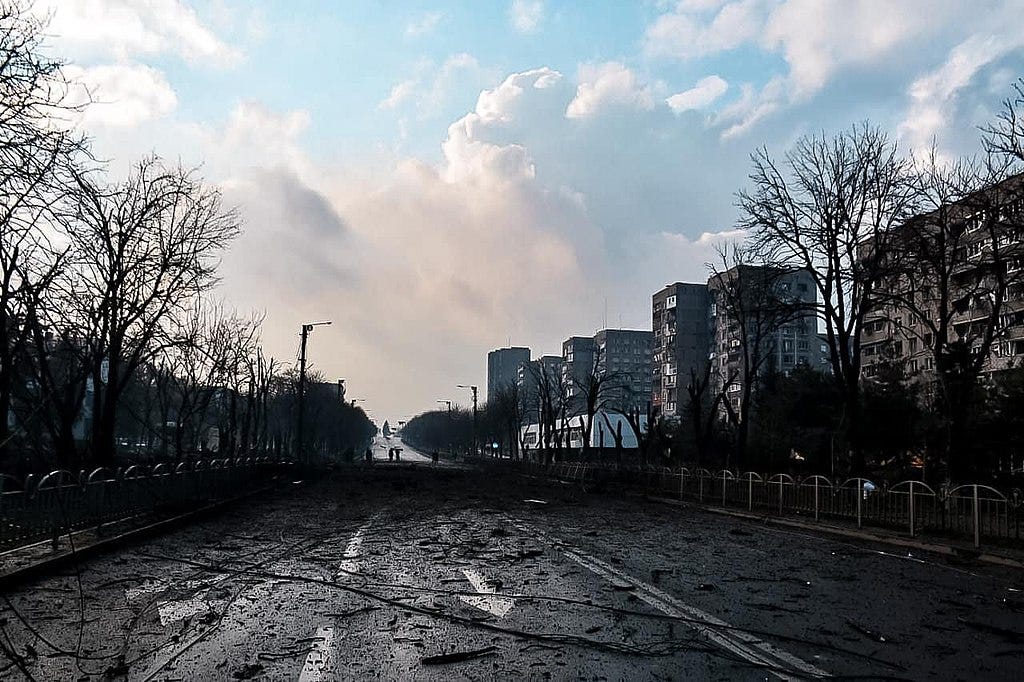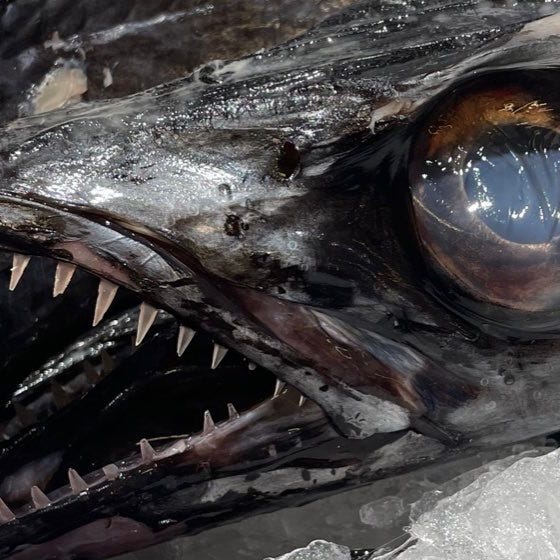We’ve seen this movie before: The forces of evil mobilize, attack, gain ground. All hope looks lost. But the plucky good guys refuse to surrender. They pull themselves together, marshal their own forces, defend themselves. There is a period of stalemate. And then comes the counterattack. Against all odds, the villains are driven out, never to return.
That’s the template for Lord of the Rings, and Harry Potter, and Star Wars, and every MCU blockbuster. On a micro scale, it’s Rocky. It’s also the basis for the eschatological tales that underpin Christianity, and Evangelical Christianity in particular. What is the Second Coming if not the third act in this well-worn narrative formula?
The events of the war in Ukraine have so far unfolded according to the script. Unless you are a Kremlin stooge or a psychopath, the war has very clear heroes and villains. Putin, remember, in his hubris, believed that the invasion would take three days. Instead, Ukraine galvanized around its intrepid leader, Volodymyr Zelenskyy, and fought back against the Evil Empire with a ferocity that Moscow did not anticipate. Too, Ukrainians call the Russian occupiers “orcs,” for the half-man/half-swine creatures in the Tolkien trilogy—Sauron’s soulless foot-soldiers. All that’s left is for the orcs to be driven back to Mordor. We’ve seen this movie before.
But this is not Hollywood. The destruction of cities like Mariupol and Bakhmut is not CGI. The devastation wrought by the genocidal Putin—who has intentionally waged war in the most cruel and malevolent way possible—will remain even after the Russians are defeated. The millions who have fled Eastern Ukraine are already gone. The atrocities are all too real. And we are not guaranteed the ending we want, even if the script so far is familiar.
“There is a lot of focus on the Ukrainian counteroffensive,” says Arthur Snell, the longtime diplomat with the British Foreign & Commonwealth Office, the host of the “Doomsday Watch” podcast, and my guest on today’s PREVAIL podcast. “We keep saying it’s about to begin, but it hasn’t quite begun, but it’s going to happen at some point this year. But in Ukraine, I think there’s a bit of nervousness that they see that Westerners are hoping that this is kind of the end of the war. Because in the movie, it would be, right? There’d be this big counteroffensive, and they’d drive the Russians off, and it’d all be heroic. But of course real life is more complicated than that.”
Yes, the Russian invasion has been stemmed. But militarily, regaining the territory now held by Moscow is a tall task. A counteroffensive, as the name implies, requires Ukraine to go on the offensive, to make the first moves. As David Leonhardt of the New York Times explains in today’s “Morning” newsletter:
Ukraine still has fewer troops and less equipment than Russia, but Ukraine’s military has so far proven more effective — with better morale, smarter tactics and more advanced Western weapons — than Russia’s. The counteroffensive is effectively a bet that Ukraine can use those advantages not just to repel Russia but to retake large territories.
“The Russians can’t really advance,” Snell says, “but they can defend.” Even in occupied territory like the Donbas, it’s easier to hold ground than to take it.
To do interviews for the (excellent) new season of “Doomsday Watch,” which is an episodic history of the war, Snell visited Ukraine last month. There are no flights to Kyiv, for obvious reasons. To get there, you have to take the train from Poland, like President Biden did when he made his visit earlier this year. Snell—who served in Afghanistan and Iraq, and knows his way around a warzone—tells me that in Poland, there are signs all around that the front lines are not far away. “Europe’s War,” as he calls it, is right next door.
“Since the end of World War II, free countries, particularly in North America and Europe, have planned for the possibility of a war with Russia,” Snell says. “Now, it’s not a war that we wanted. But we knew it was a possibility and we planned for it. And the weird thing is that that war has now happened, but it turned out that [Russia] did it against Ukraine. But it is definitely that war, because if Russia wins this war, Europe can’t be at peace.”
LISTEN TO THE PODCAST
S5 E13: Not All Doom (with Arthur Snell)
Greg Olear welcomes Arthur Snell back to the program. After graduating from Oxford with a first class degree in history, Snell joined the Foreign and Commonwealth Office. A fluent Arabic speaker, he served in Afghanistan, Zimbabwe, Nigeria, Yemen, and Iraq, and then headed the international strand of the UK Government’s Prevent counterterrorism program. He is currently a geopolitical consultant, author of “How Britain Broke the World,” and host of the hit podcast “Doomsday Watch” which has produced a new season that chronicles the history of the war in Ukraine. The far-ranging discussion goes from Eurovision to Rishi Sunak to the coronation to Mariupol. Plus: Seid hustles.
Follow Arthur:
https://twitter.com/SnellArthur
Subscribe to “Doomsday Watch:”
https://kite.link/doomsday
Buy his book:
https://www.amazon.com/How-Britain-Broke-World-Afghanistan/dp/1912454602
Sign up for his Substack:
Also…Epic Sax Guy.
Photo credit: Міністерство внутрішніх справ України. Mariupol downtown street destroyed by the Russian siege.






My grandmother survived WWII & the London blitz, taking in a young woman from Berlin and assisting a couple who helped Jews escape. I remember the many stories she told me while growing up in a post war Britain. But the one that has stuck with me all these years later, was the sheer brutality of the Russians. She maintained they were worse than the Nazis. Great piece Greg & Arthur. Thanks to you both!
Funny you should draw a parallel between the war in Ukraine and Evangelical Christianity with respect to the predictable three-act script in the war between good and evil. To me, there’s an interesting essential contrariness in those two scenarios. The Ukrainian ‘good guys’ have claimed their personal power and risen up in righteous indignation over having been wrongfully attacked; whereas the Russian soldiers are largely puppets, relying on some (to them) intangible force—Putin—to drive whatever motivation they have to continue fighting. Evangelicals may say they’re fighting the cosmic forces of evil—the Devil—but mostly these days they’re fighting a culture war against ‘woke’ individuals who have claimed their personal power—which is often why they’ve left Christianity. Meanwhile, the Evangelicals themselves, the self-appointed ‘good guys’, rely on their Big Daddy in the sky to bail them out. Your point about good supposedly winning in the end is well taken. But some wars involve guts, and some rely on faith.